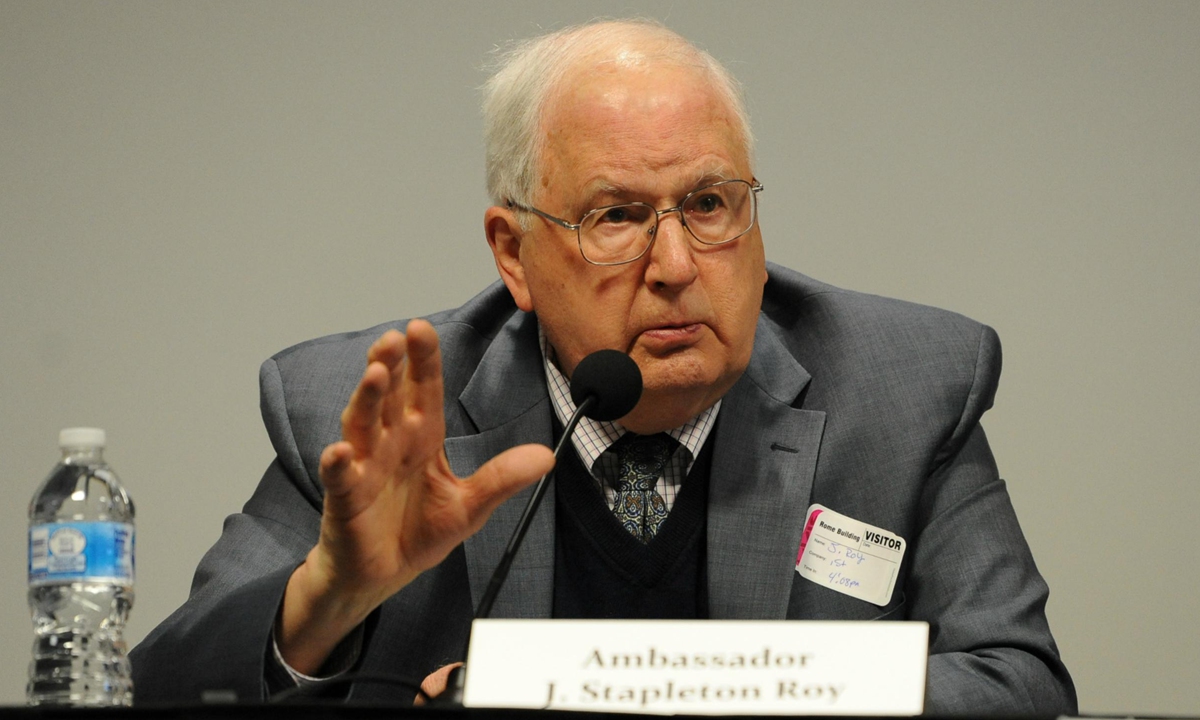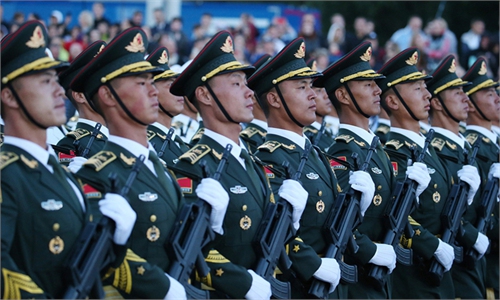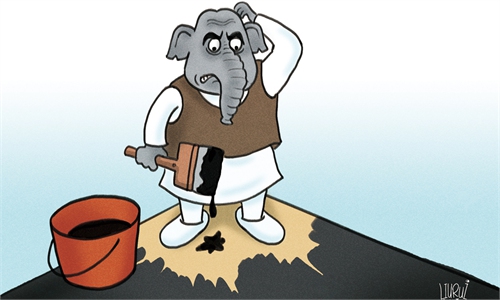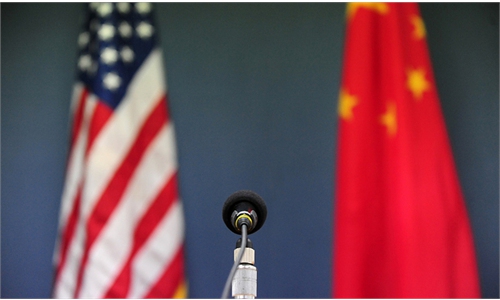
Former US ambassador to China J. Stapleton Roy Photo: VCG
Former US ambassador to China J. Stapleton Roy said that the situation in the Taiwan Straits has reached a dangerous level, and the US should take action to make China confident that the US supports the "one-China policy," as he is concerned that the two countries are facing the worst situation since they established diplomatic ties 42 years ago.
Roy, a former senior diplomat of the US and Distinguished Scholar at the Wilson Center's Kissinger Institute on China and the United States, made the comment at the Beijing Xiangshan Forum Webinar, which kicked off on Monday night via video link.
More than 50 senior scholars, military officers and former diplomats and officials from China and more than 20 countries and international organizations have been invited and attended the webinar. Guests from Asia-Pacific countries like South Korea and Japan have also expressed their concerns over intensifying China-US tensions.
At the first panel with the theme "Major Power Relations and Asia-Pacific Security," Roy said if China-US tensions continue, the possibility of military confrontation and nuclear proliferation would emerge and increase, and Southeast Asian countries would be forced to choose between the two major powers, and no country will benefit from the confrontation.
Moon Chung-in, former special advisor for South Korean President Moon Jae-in for foreign affairs and national security and chairman of the Sejong Institute, shared Roy's opinion and said at the panel that China-US relations at the moment make countries in the region worried, and the possibility of a new Cold War between China and the US cannot be ruled out. Noboru Yamaguchi, a retired Japanese Ground Self-Defense Force Lieutenant General and vice president of the International University of Japan, also said every relevant party will lose in the (potential) China-US zero-sum game.
Roy expressed concerns over the Taiwan Straits' situation and suggested that the US avoid the possibility of a military conflict in the region by strengthening China's confidence in US insistence of the "one-China policy" and to reconfirm that a peaceful solution to the Taiwan question serves the fundamental interests of the US, and this will be able to create conditions for Beijing to ease tensions.
Roy also said the US move to build alliances in the region like the Quad and the AUKUS and exporting a nuclear submarine to Australia has caused concern of an arms race among regional countries.
Zhao Xiaozhuo, a research fellow at the Academy of Military Sciences of the PLA who attended the webinar in Beijing, told the Global Times that "the Taiwan Straits situation is getting worse because the US and the Taiwan secessionist DPP authority controlled by the US are provoking, and this will definitely receive retaliation from the Chinese mainland…the US will keep playing 'the Taiwan card' and support the authority on the island to expand its 'international influence.'"
Although the US treats China as its major strategic competitor, the two sides should at least try to avoid the worst-case scenario, to improve crisis management, Zhao noted.




